What are restaurant franchises?
A restaurant franchise is a business model in which a company licenses its trademarks and methods of doing business to an individual or group of individuals, who then open and operate restaurants under the company's brand name.
10 Best Restaurant Franchises to Partner With This Year
What is a Restaurant Franchise?
Every aspiring entrepreneur looking to establish their own restaurant must be prepared to spend long hours setting up their new business -- planning the menu, managing the workforce, controlling inventory, planning marketing activities, and overseeing finances. However, if you opt for a franchise of an already established brand, some of these tasks will be taken off your hands. At the very least, you'll receive a readymade template by which to run your operation.
A franchise is a business where owners grant third-party operators the right to use their name and business model, and offer administrative support in exchange for an upfront fee. The process typically starts with an initial investment made by the person who wishes to become the franchise owner, and in return, they are given access to marketing material, as well as training and build-up for their own business. The right to use the company's intellectual property is granted through a Franchise Agreement that typically includes a franchise fee and the agreement to pay a monthly or yearly royalty fee (a percentage of the gross sales). For inexperienced new entrepreneurs, this arrangement is often the training ground they need to set up their own business later on.
Restaurant businesses with a traditional operating model have been struggling to recover from the effects of the pandemic. At the same time, continued innovations and evolving consumers have ensured that the restaurant industry remains a lucrative business proposition. Moreover, it offers scope to experiment and grow.
For instance, some of the biggest restaurant franchises continually innovate to attract more customers and improve profits. They are implementing new, or refining existing services that can replace traditional dine-in models. Drive through, take-away, catering, and other off-premise services are becoming increasingly popular. Buying a franchise means investors don't have to wrack their brains over what technological advancement will propel the business forward -- that ground work has been done by the parent company. Franchises are also popular because investors don't have to jump through all the legal hoops of starting a business from scratch.
Of course, anyone who invests in popular restaurant franchises will have to spend on renting or buying premises and equipment to meet a franchisor's requirements. Franchises tend to be steeply priced. However, in return for that price, franchises offer investors pre-established brand value, customers, and operating procedures, which makes running a business easier and hassle-free. In addition, they draw profits immediately, help save on advertising and marketing, and reduce the risk of failure.
How to Select the Right Franchise to Partner With
If you're serious about franchising a restaurant, the experience will only be rewarding if you do your research thoroughly. Finding the right franchise opportunity is not an easy task; there are many factors that play a role in it. Here are some helpful tips on what to do-
- Do your homework- Take the time to familiarize yourself with the food industry and consider what will be a suitable commercial investment opportunity. Research options you can capitalize on, read reviews, talk to others who own a franchise you like, and attend industry events to understand each option better.
- Determine your goals- Are you looking to sell burgers? Or do you aim to make artisanal coffee and sandwiches? Would a particular franchise fuel your long-term goals? Ascertain the franchise's goals and ensure they align with your own.
- Is the brand a good fit for your selected area? Before you sign anything, you need to know whether the brand is a good fit for your local market. Meet with people in your area and see what they have to say. This will help you raise pertinent issues before the deal is done.
- Plot out your budget- Don't rush into anything. Before making any decisions, consider your financial situation and ensure you have enough capital to invest in the franchise. Every well-known restaurant franchisor has a significant initial franchisee fee, besides additional fee for improvements, and an ongoing royalty fee. Being prepared for these expenses will help prevent potential money crunches or disappointments later down the line.
- It pays to know the history of the franchisor- A franchisor's age in the market is crucial, as it defines the franchisee's ability to grow and earn profits. It also proves that the franchisor has gone through the different stages of business growth and is achieving constant profitability in the market. Of course, if you choose to invest in such a franchise, you must also consider other aspects, such as the business model, consumer's response to the brand, and its overall market value.
- What support is the franchisor willing to offer? Support from the franchisor is very important and can make all the difference in your success or lack thereof. Get a sense of what support they provide for training and resources, financial backing, location assistance, advertising/marketing, technical expertise, and investment in technology.
- Understand the finer points of the deal- Restaurant franchises have many rules and regulations, which can change depending on where you are. It's important to understand the terms and conditions set by the franchisor -- both, your responsibilities and theirs. These will usually be outlined in the Franchise Disclosure Document (FDD). Ensure you read it thoroughly to make sure no clauses have been missed.
A restaurant franchise is a great business opportunity. . .
. . . but only if you pick the right company to partner with. This article will tell you where to lay your bets..
Prerequisites to Open a Food Franchise
Once you've zeroed in on a franchise of your choice, it's time to apply for a license and get approved. Just like you've done your research, the franchisor will do the same at their end to determine if you are a suitable match for their brand. Typically, a prospective franchisor will want to know more about the applicant and how they plan to run their business. They may require the applicant's personal details and ask questions about their finances. Franchisors generally set minimum standards for financial requirements and experience, which must be met for an applicant to become a franchisee. The collective experience of all franchise owners adds value to each location within the business itself -- for example, customers will notice consistency through repeat service or experience by each dedicated owner.
Some of the pre-requisites required to invest in a food franchise include-
- Credit rating- Most franchisors accept a credit rating of at least 680, but the higher the rating, the better bargaining power you'll have.
- Net worth- The franchise world has its ideas of net worth depending on each company; from a general perspective, prospective owners should be prepared to have more money at their disposal than most traditional business owners. If your franchisor requires a large initial investment, you'll likely need a higher overall net worth to qualify for ownership.
- Start-up capital- Owning a business is expensive. Before you can even open your doors, you need enough cash to cover initial costs and make sure you have enough on hand to carry yourself through the first year of operation. In the beginning stages of your business, commercial banks, especially those that work with franchisors, are good places to borrow from. You could also raise capital through third-party sources like friends and family, or other investors who want a piece of the pie.
- Business plan- If you're borrowing money for your business, one of the main requirements is a business plan that you'll need to present to a lender. Before formulating a plan, go over all the details provided by your prospective franchisor, coupled with your own personal research. Your plan should include details such as estimated investment costs, besides projected returns. Most importantly, make sure your business plan is well written, so as to improve your chances of scoring the loan.
- Regulatory or legal requirements- Before committing to a franchise, you'll also have to make sure that any regulatory or legal requirements pertaining to that franchise have been met. In some cases, it could be that you simply need to obtain a license and a location for the store; in others, you might need experience in insurance, administration, and consumer credit.
- Prior experience with franchising- While this isn't essential, it certainly can give you a leg up over those who haven't previously delved into the field. Prior experience in Restaurant Management may also come handy.
- Management experience- It is not essential, but it's an important factor when it comes to starting a business. People are often promoted because of their success in handling multiple projects simultaneously, so take this into consideration -- your management skills will become relevant when you try to impress potential franchisors. Even as you highlight your experience at managing people and events, you can show that you take initiatives, that you're self-motivated, and that the stress of launching a new business won't overwhelm you.
Now that you have the basics in place, here's a list of potential franchises to consider.
Franchise No. 1 - Jack In The Box

Jack in the Box has been a franchising success story, with over 2200 franchise units currently operational and more in development. The chain's story began in 1951 when its founder, Robert O. Peterson, had a legendary drive-thru dream. In his vision, he saw a long line of cars waiting to order meals using the futuristic new intercom system at his newly opened burger stand.
The chain's kitchen is always open. It is one of the few quick-service restaurants that are open for all five day-parts, including breakfast and late night. It seems to be a significant factor behind their success, enabling franchisees to capitalize on customers when competitors have closed for the day.
Before opening the franchise, the Jack in the Box operations team helps the BOH (back of the house) and FOH (front of the house) staff manage inventory, recruit employees and train them. As part of the pre-opening process, the designated market operator must complete a 10- to-12-week training course, which typically takes place in San Diego, but can be offered locally as well (subject to the availability of a suitable training store). Alongside this, there's also a web-based training program that the associates who manage the restaurant must complete, along with several courses in food safety.
The initial cost of a Jack in the Box franchise will vary depending on the restaurant's location, but it's estimated at between $1.7 million and $2.7 million per store. These initial costs include everything required to get your franchise up and running, including the one-time fee that typically does not exceed $50,000 and building improvements that average approximately $785,000. An initial supply of inventory valued at about $20,000 is also part of the deal. It also includes operating funds to help you stay afloat for the first three months.
Franchise No. 2 - McDonald's
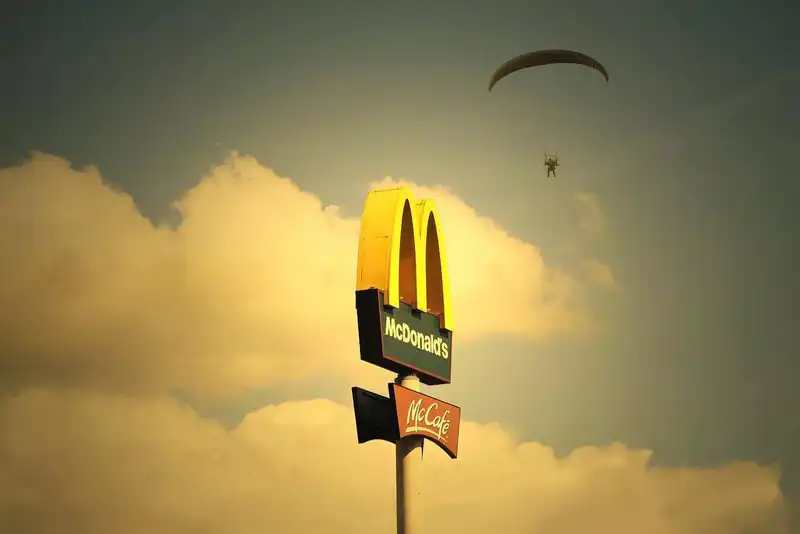
Everyone knows that McDonald's restaurants are one of the world's most popular fast-food franchises. If you're interested in fast-food franchise opportunities, it makes sense to consider McDonald's, as they have 90% of their restaurants under franchise ownership -- New York alone has 655 outlets. These numbers attest to the sustainable business model the company has in place.
New franchisees enter the McDonald's system by either purchasing an existing restaurant from an older franchisee, or from McDonald's USA, LLC directly. The investment and franchise fees depend on several factors, including but not limited to occupancy costs, profitability, sales volume, time to time improvements, and location.
A McDonald's franchisee applicant must undergo a thorough screening process, followed by a five-step selection process that includes reviewing your application and checking your background and credit. There may also be one or several personal interviews and verification of all important financial documents, including tax returns and bank statements. Once you've completed this lengthy process, you are eligible to enter the training program that takes 6 to 18 months to complete, but can be done part-time.
If you're considering opening a McDonald's franchise, the first crucial thing to consider is the capital cost. Capital outlay for a new McDonald's franchise ranges from $1.3 million to $2.3 million, on average. Existing franchisees can range in price from $1-$2 million. In addition, aspiring franchisees should pay $45,000 as initial franchise fees and continue to pay monthly service fees equal to 4% of their gross sales.
Keen on buying a restaurant franchise, but not sure if you're making the right decision.
This article tells you why a restaurant franchise is a great investment, and how to pick the right one.
Franchise No. 3 - KFC
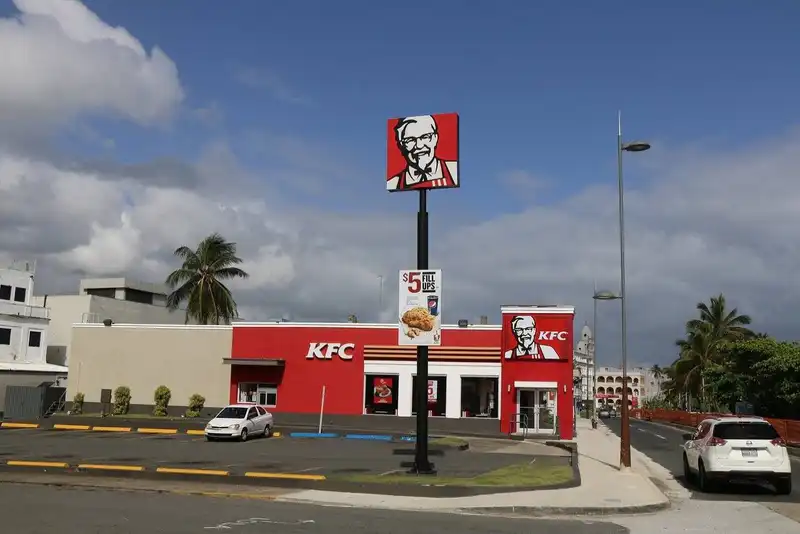
According to Colonel Sanders, it was his mother who taught him how to cook. After years of practice, he perfected his secret recipe of 11 herbs and spices and opened his first restaurant in Corbin, Kentucky, serving family meals. The Colonel helped secure KFC's future as a company, making smart decisions from the very outset. The restaurant franchising model drew crowds early on, and the Colonel was always around to support friends and family along the way.
A franchisee invented the bucket, so important to KFC's brand identity today. He also coined the phrase "finger-lickin' good". That relationship between franchisee and brand is one that endures 75 years later- KFC has 4000 franchisees cooking up opportunities across America.
Buying a KFC franchise is an incredibly smart decision. After all, the company is backed by a great business model, and you earn the benefit of a powerful support system. In addition, if you buy into KFC, you get industry-leading incentives for new development and the option to work with traditional restaurants, truck stops, and in-line locations. Besides, KFC has a digital strategy that ensures your customers have a frictionless, safe, easy, and speedy experience. And its marketing procedures are ranked among some of the best in the industry. Maybe that's why a KFC restaurant opens globally every six hours.
Like any other restaurant, KFC's startup costs include acquiring real estate, renovation and construction costs, equipment, signage, and professional fees (licensing, accounting or lawyer fees). These investment costs vary depending on the local real estate market, the size of the outlet being opened, and construction-related factors. However, the defining fee for buying a franchise is the franchise fee (approx $45,000) which covers a period between 10 to 20 years, depending on the contract type.
KFC franchises fall under two categories- non-traditional and traditional. The non-traditional outlets are smaller and offer a limited menu. It is an open avenue for new franchisees to begin their careers with the brand, including investors planning to expand their portfolios. For new ground-up construction, the estimated investment is $1,442,600 to $2,771,550, depending on the franchisee's selection of property and assets.
Franchise No. 4 - Pizza Hut
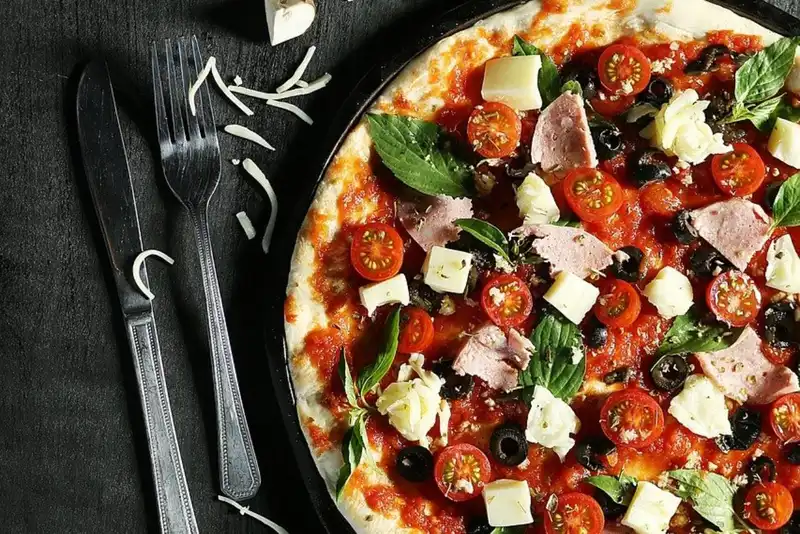
The Carney brothers borrowed $600 from their mother to open a pizza restaurant in Wichita, Kansas, in 1958. Unfortunately, the sign out front only had room for eight letters, and that's how Pizza Hut was born.
Pizza Hut was on a roll right from the start and it did not take long for people to latch on to the brand immediately. The pizzeria has come a long way since then. With innovation at its core, the brand has created several new offerings (including its signature Original Stuffed Crust), impacted pop culture, and famously delivered its pizza into space.
Before opening a Pizza Hut outlet, operators are required to complete an 8- to 12-week-long training program. It is conducted at a certified training center in Plano, TX. Pizza Hut pays the costs associated with the training program, while the franchisee must deal with all other costs, including travel and lodging for its participants.
For a candidate to qualify as a Pizza Hut franchisee, they must be hands-on with the business, customer-focused with strict attention to detail, and able to build and lead a team. As a Pizza Hut franchisee, your business will benefit from the brand's support in every step, from site selection assistance and building construction to initial store operation and marketing. A potential owner will need previous experience in restaurant management or owning a successful retail establishment with a focus on sales. Their financial requirements include $700,000 net worth, $350,000 liquid assets, and a strong credit report and history.
Besides, there's an initial franchise fee of $25,000, a monthly service fee or royalty fee of 6% of the gross sales, and charges for national advertising that are 4.75% of the gross sales.
Franchise No. 5 - Denny's

Denny's, a popular fast-casual, full service restaurant, was initially launched as an independent store in 1953. The first franchise store didn't open until 1963. The restaurant remains a popular dining establishment today, with more than 1680 stores across the United States. One of the brand's most successful franchise owners, Dawn Lafreeda, started working at Denny's as a teenage server. Today, her company, Den-Tex Central, operates 81 Denny's outlets, employing over 3,000 people across six states. Each month nearly 1.2 million customers dine at its restaurants, generating $100 million in sales a year.
Denny's is a family-style restaurant that offers a variety of items. Its focus is on moderately-priced food catering to a wide range of customers. Franchisees have the opportunity to operate a standard restaurant with a comprehensive system for developing and operating the unit. This includes trademarks, building design and layout, equipment, ingredients, recipes and specifications for authorized food products, training, methods of inventory control, and certain operational and business standards and policies.
To become a part of Denny's success story and net a franchise, you'll need $500,000 in liquid capital and $1 million in net worth. There's also an initial franchise fee of $30,000 and an estimated total initial investment of $1.3 million to $2.4 million. That may sound like a big ask, but there are incentives offered to certain franchisees.
Franchise No. 6 - Subway
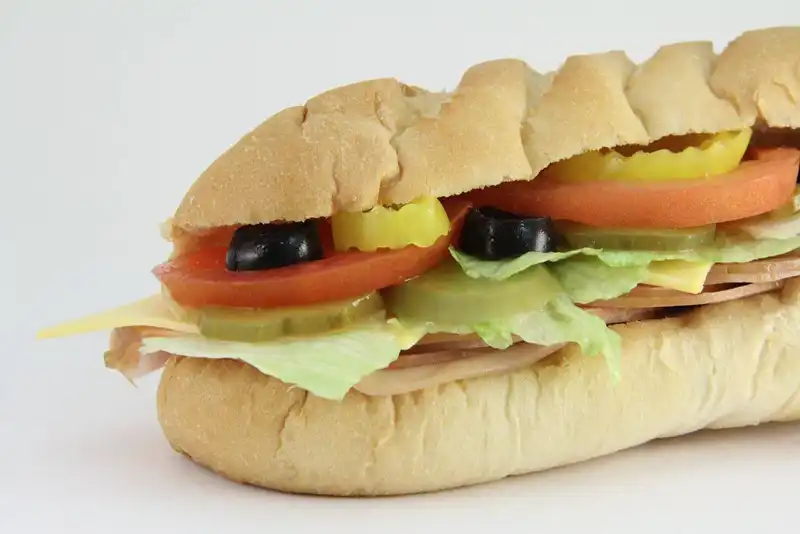
This well-known chain has long been the go-to destination for those on a health kick. Subway started life as 'Peter's Super Submarines', a sandwich joint established by Fred DeLuca in Connecticut in 1965. Since then, the brand has grown to over 40,000 locations globally. Originally designed as a sandwich eatery with healthy ingredients and fresh meats, it has recently gained popularity as a health food destination.
A Subway franchisee must complete due diligence and pass several requirements before entering into a full licensing agreement with the franchisor. The first step for an aspiring Subway franchise entrepreneur is getting their business site approved. It involves detailed market research, plus large capital investment. Besides gaining approval of their business site, a prospective franchisee must possess a net worth of $80,000 to $310,000 and liquid cash in the range of $30,000 to $90,000.
However, its low operating cost attracts potential franchisees to Subway. Subways are highly affordable and come with low startup costs. One of the initial steps to signing the deal requires franchisees to identify a site and pay initial construction costs, ranging from $116,000 to $243,000. It is much lower than the cost of competing fast-food franchises. Besides, an initial startup licensing fee of $15,000 is required to launch the business.
Franchise No. 7- Taco Bell
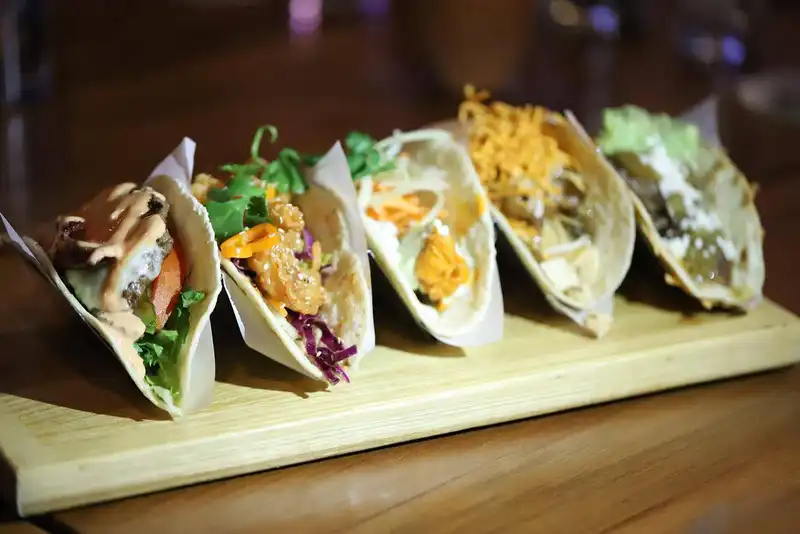
Glen Bell spent his youth selling hotdogs at a taco stand in San Bernardino. At 19 cents each, they were cheap and tasty. In 1952, Bell sold the hotdog stand to build another store that sold hotdogs and hamburgers. He switched to selling tacos later at a taco stand called Taco-Tia.
He opened three Taco Tias between 1954 and 1955 in the San Bernardino area. Then, in 1962, he sold these off to his friend and went solo with Taco Bell.
In 1964, Bell opened a restaurant franchising business and grew it rapidly. The 868-restaurant chain was sold to PepsiCo in 1978 for $125 million in stock. That's an inspiring story of entrepreneurship! Now, Taco Bell is a part of Yum! Brands.
Despite several changes by various owners, Taco Bell still retains its "be your own brand" philosophy. Under the current ownership of Yum! Brands, Taco Bell has styled itself as the go-to joint for authentic Mexican fare and refreshing beverages. Today, Taco Bell is one of the strongest brands under the Yum! Brands umbrella, with 7090 stores operated by 350 franchise organizations in the United States.
Starting a Taco Bell of your own can be lucrative. A standalone Taco Bell franchise location may cost between $1.2 million and $2.6 million. This is exclusive of the lease and land costs. Although the initial investments vary significantly based on location and the type of restaurant, one can expect it to be roughly between $530,000 to $3 million. The initial franchise fee costs $25,000 to $50,000.
Franchise No. 8 - Auntie Anne's

When Anne Beiler's husband dreamt of opening a free counseling center for their community, Anne baked and sold pretzels to finance his dreams. He opened a counseling center, and 'Auntie Beiler' became an unlikely entrepreneur. From selling pretzels at a farmer's market in Pennsylvania, she became the owner of the largest soft pretzel franchise globally.
Auntie Anne is today one of the world's most recognized pretzel chains, with over 1,800 locations in the United States, where the pretzel industry is a multi-billion dollar enterprise globally. The brand has been instrumental in introducing international pretzel standards globally.
Auntie Anne has always sought ways to grow sales and gain brand fans. So it recently introduced a catering menu, providing an opportunity to franchise owners to boost their sales and gain even more brand followers. The new catering menu features pretzel buckets, party trays, dips, drinks by the gallon, and more. Franchise owners of all build-outs (there are several options) can benefit from this new service.
To join Auntie Anne's growing network, you need experience in the restaurant industry and demonstrable customer service skills. Numbers-wise, the ideal candidate should have $100,000 in liquid capital and a $300,000 net worth. The estimated initial investment ranges between $199,475 to $385,100, with an initial franchise fee of $30,000.
Franchise No. 9 - Popeyes Louisiana Chicken
When Al Copeland opened his first Popeyes location in 1971, he tried competing with Kentucky Fried Chicken (KFC). Unfortunately, he failed. But not one to give up, he came up with Popeyes Mighty Good Fine Chicken a year later. Copeland didn't take time to realize that franchising his idea was the best way to grow. The first few Popeyes franchises popped up throughout Louisiana. Today, Popeyes boasts over 2,700 locations worldwide.
In early 2017, Popeyes was purchased by Restaurant Brands International (RBI), which also owns Burger King and Tim Hortons (Canada's largest quick-service restaurant chain).
The Cajun and Creole flavor profiles of Popeyes Louisiana Kitchen are unmistakably Louisiana. However, Popeyes distinguishes itself from other fast-food restaurants with its spicy chicken, fried shrimp, and other regional items on its New Orleans-style menu. Its speciality offerings have allowed the chain to grow into one of the largest chicken quick service restaurants in North America, with over 2,700 locations.
Popeyes hogged headlines in 2019 when it added a new chicken sandwich to its menu. Fans of Louisiana cuisine queued up outside franchise locations everywhere because the ever-so-popular spicy sandwich had already sold out nationwide. It's evident that Popeyes has a loyal and enthusiastic fanbase.
To make that fanbase a part of your entrepreneurship journey, you will need to shell out an initial franchise fee of $50,000. The chain seeks entrepreneurs with a proven track record of operating their business, preferably in the QSR industry. In return, it helps franchisors through ownership, development and operations. An estimated investment of $235,000 to $454,000 is required for each location. Beyond these estimated initial costs, an ongoing fee of approximately 4% of gross sales is allocated to a marketing fund, and 5% covers the royalty fee.
Franchise No. 10 - Melting Pot

Fondue restaurants were popular in the 1970s, but few restaurants specialized in them. Opened in Maitland, Florida, in 1975, the first Melting Pot changed that. A quaint restaurant with just three items on its menu- beef fondue, Swiss cheese fondue, and a chocolate fondue dessert -- the restaurant's popularity grew quickly. The menu and ambiance also evolved. College student Mark Johnston, working as a waiter in the restaurant, noticed the restaurant's evolution and chalked out a plan with his brothers Mike and Bob to open The Melting Pot of Tallahassee in 1979 (with the support of the original owners in Maitland, of course!). The Tallahassee location became tremendously popular and, within one year, paved the way for future franchise expansion.
In 1985, Mark, Mike and Bob purchased all rights to The Melting Pot brand, which they renamed The Melting Pot Restaurants. The company started franchising its restaurants after a year of research and reorganization. It currently has more than 113 restaurants in 34 U.S. states, Mexico, Canada, and The Middle East.
To become part of the Melting Pot Fondue chain, you need at least $250,000 in liquid capital and a minimum net worth of $500,000. The franchisor will provide financing if you have successfully operated another profitable business earlier. An estimated total investment of approximately $876,695 is expected. In addition, veterans may qualify for 5% off the franchise fee.
A restaurant franchise that has made it to the top is a good company to partner with.
This list of the top 10 restaurant franchises in the US will guide you towards the right brand.



